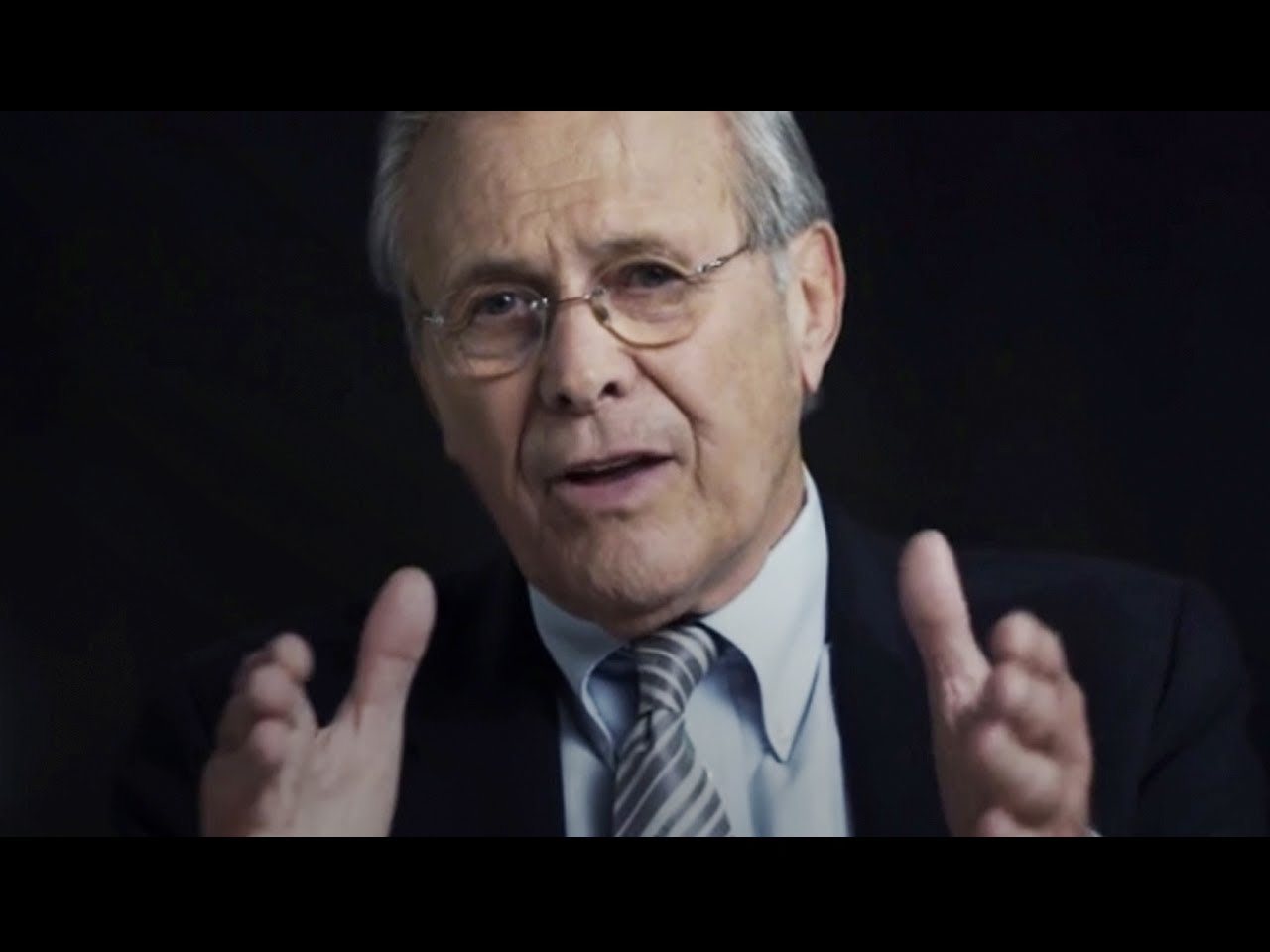Director: Errol Morris,
Watched at: True/False Film Festival
Rating: 1.5/5.
The poster for the new Errol Morris documentary, The Unknown Known, displays a picture of a grinning Donald Rumsfeld along with the caption, “Why is this man smiling?” Well, you’d smile too if you came to this project expecting Morris to hold your feet to the fire and instead you end up getting a foot massage. Former Secretary of Defense Donald Rumsfeld was one of the main architects of George W. Bush’s war on terror, which began first in Afghanistan and then continued in Iraq. It was a disastrous campaign of astounding incompetence and murderous ruin, resulting in the deaths of hundreds of thousands of Iraqi civilians and tens of thousands of American soldiers, and the physical and psychological maiming of tens of thousands more. It’s important to remember all of this when watching The Unknown Known, because at no point in this film does Morris hold the former Secretary accountable for his actions. At no point does he present the irrefutable evidence of Rumsfeld’s dereliction. At no point does he confront the man with pictures of the dead and damaged. I kept waiting for Morris to produce the infamous memo, the one alerting the Bush administration to Osama bin Laden’s determination to attack within the United States, and to ask Rumsfeld, charged with the nation’s security, why he ignored it. But the memo plays no part in the film. What, one wonders, was Morris’s intent in making this picture?
After 34 hours of interview footage with one of the more slippery politicians in the Bush cabinet, The Unknown Known, running a swift 90 minutes, delivers neither insight nor closure. And this from Errol Morris, who once made a film that helped free an innocent man from death row. That movie, The Thin Blue Line, remains a milestone in documentary filmmaking, a re-thinking of the genre that combined journalistic integrity with cinematic aesthetics. It was a formally bold hybrid of style and substance that continues to influence filmmakers today. But in recent years Morris has stumbled. His intentions were questionable with Standard Operating Procedure, a high-minded and sensationalistic deconstruction of the Abu Ghraib torture photos. That shameful scandal is covered in a few quick minutes in The Unknown Known, as is nearly every other chapter in Rumsfeld’s questionable, decades-long tenure in the federal government. Morris seems more concerned with filling in the details of Rumsfeld’s resume, and with portraying him as some sort of charming, impish witness to history.
The movie may interest fellow neo-cons as a biography of Rumsfeld’s political career, but it falls well short of an interrogative interview. Morris appears reluctant to ask the tough follow-up question, letting Rumsfeld off the hook time and time again. Instead the director chooses to apply his potent visual style to an analysis of Rumsfeld’s contorted, self-serving doubletalk. He focuses on the man’s infatuation with his own twisted epigrams and word play, a lexicon of catch phrases and pseudo-explanations Rumsfeld deployed during press conferences to cover-up and excuse his delinquent leadership.
The Unknown Known ends up being a film about words and definitions, but “honesty” and “responsibility” aren’t among them. If Reagan was the Teflon president, then Rumsfeld is a greased pig, and Morris will be wiping the Crisco off his hands for years to come.

